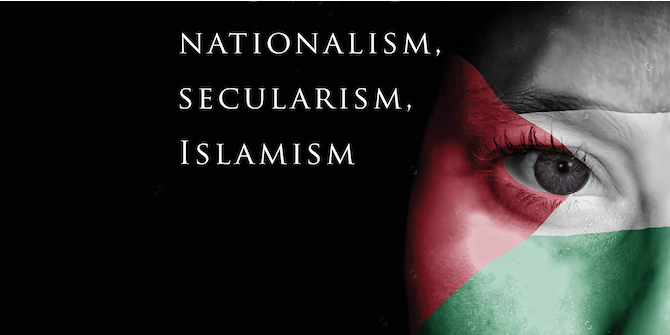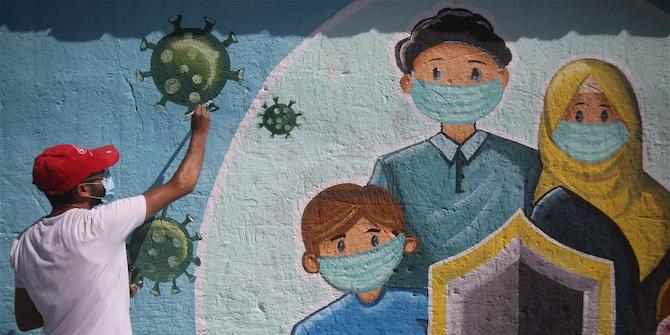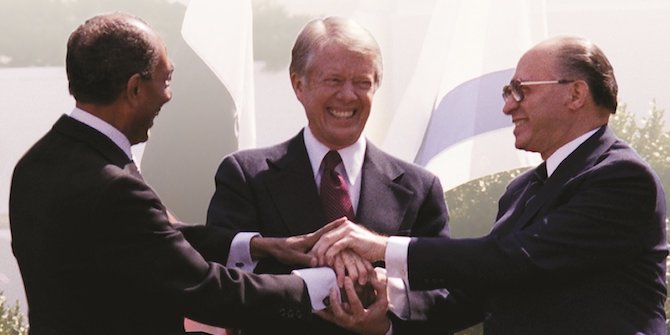by Walaa Alqaisiya
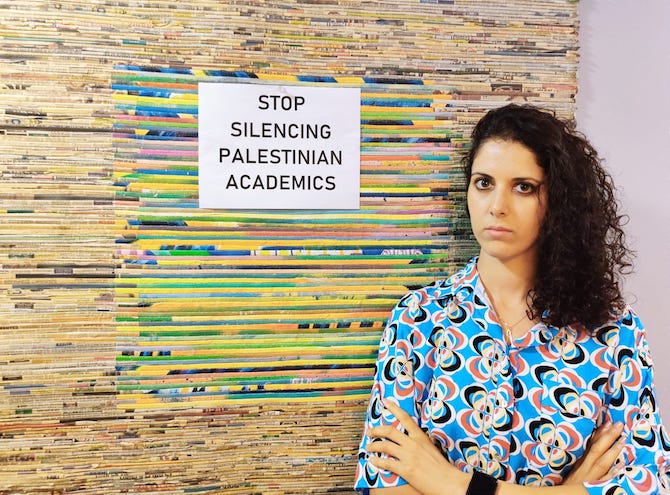
A Disinviting Phone Call
On 18 February 2022, I received an invite on behalf of the Institute for Art Theory and Cultural Studies in Vienna (akbild) to participate in its annual Spring Curatorial Program 2022: Art Geographies, scheduled to run from 23 May to 1 June 2022. The programme springs from its main organiser Dr Jelena Petrović’s research project ‘The Politics of Belonging: Art Geographies.’ Based at the akbild, the project also emerged as the result of collaborations with other institutional and non/institutional domains, such as the Museum of Modern Art Ludwig Foundation (mumok) and Verein K: the latter being Petrović’s own team of independent curators, theorists and artists that work to ‘critically engage with contemporary art and culture based in Vienna.’ The letter from Petrović extended an invite to give a public lecture in the programme, especially after the organisers read some of ‘my mindful and important texts and watched me speak in a recent online talk about queerness, feminism and Palestine’ (from the email invite of February 2022). Following back and forth conversations with Petrović, including a zoom call where she explained the programme and its decolonial, feminist, anti-racist, and anti-extractivist goals, I accepted to deliver the lecture, scheduled for 30 May 2022. I also provided the organisers with an abstract for the talk, based on my upcoming book Decolonial Queering in Palestine (Routledge, 2022). The organisers went ahead and booked a flight and hotel as well as announced the schedule for my upcoming talk in their online programme (see page 50). Yet, what seemed a routine engagement for an academic suddenly metamorphosed into a horrific nightmare.
On 21 May 2022, I received an email from an anonymous source warning me that ‘pro-Israel and antifa’ local groups in Vienna were mobilising to cancel my lecture. Vienna-based pro-Zionist Twitter accounts had also begun to wage what appeared to be a smear campaign against me and my work for the purpose of cancelling the lecture. I immediately forwarded both the tweets and the email to Dr Petrović whose response, two days later, assured me that she was going to investigate this, but there was no cause for serious concern. Following Petrović’s advice, I went ahead with my travel preparations, assuming the lecture would go ahead as planned (see programme screenshot taken from the akbild website below).

However, on 25 May I received a phone call from Petrović to inform me that there was mounting pressure around the lecture and the event’s cancellation was now being considered within akbild and mumok. The following day, another phone call confirmed the cancellation. The two phone calls left me confused regarding who exactly stood behind the cancellation and what internal policies had been taken to reach such a decision. After numerous emails with the organiser, it was finally confirmed that both akbild and mumok took this decision following pressure exerted from pro-Israel groups, including the Council of Jewish Students in Austria and KESHET Austria, who labelled my work as antisemitic. Throughout my exchanges with the organiser, the absurd proposal was made that I come and engage students on academic freedom at akbild. The same institution that had cancelled my lecture was now interested to talk about academic freedom. Meanwhile, the institute acted very quickly to cancel my event from their webpage (see below screenshot). I cannot stress enough that, up to this moment, I am still unaware of the due process and/or the legality of the procedures undertaken to cancel me.

The Boundaries of the Powerful
Ironically, my cancellation reinforced the very argumentation that my lecture had sought to make in the first place. The lecture’s aim, in fact, was to engage students and scholars on the aesthetic boundaries of what I call the ‘Zionist sensual regime,’ and how the latter aligns with a wider colonial ‘international’: a Euro-American regime of sex and sense distribution. The lecture drew on the example of Netta Barzilai’s 2018 Eurovision Song Contest win and examined how the global proliferation of a ‘colonial feminist queer consensus’ proceeds from a prior aesthetic distinction, that is, the demarcation of a clear boundary defining what is sayable/unsayable, visible/invisible. Such an aesthetic distinction is not an individual singular act of boundary making, but it is governed by forms of geopolitical recognition and markers of national sovereignty that are both predicated on and productive of indigenes’ continuous erasure through the settler-colonial structure of what Palestinians refer to as the Nakba. When centring the role of the Nakba to its analysis, Palestinian queer activism reveals the gendered and racial processes underpinning Israeli pinkwashing, including native disappearance and regulation within local (inside colonised Palestine) and global (internationally, mainly within Western geo-political allies of Israel) terrains of settler-colonial global mobility. The cancellation of my lecture, led by pro-Israel groups and their political and virtual networks including queer-affiliated ones, captures the colonial-settler logics of feminist/queer sense that proliferate within European institutions, both academic and artistic. Their silencing of Palestinian voices and narratives works in tandem with the political conditions marking ongoing Palestinian erasure.
As I wrote in my statement in the aftermath of my cancellation, such arbitrary infringement on academic freedom amounts to racial discrimination against Palestinian scholars:
‘I consider both the cancellation of my lecture and the latter proposal as a general attack on the rights of academics to exercise their freedom of expression, as well as a blatant form of racial discrimination directed at Palestinian scholars. The weaponization of antisemitism against Palestinian academics is a form of racism that aims at silencing, defaming and erasing Palestinians and their narratives; whilst uncritically accepting the material and ideological reality imposed by Zionist and pro-Israel groups.’
The statement aimed at mobilising a push-back against mumok and akbild, and was followed by condemnations of their decision from fellow academics and artists, such as Francoise Verges, Kate Sutton and Rino Isto, as well as from institutional bodies including BRISMES, SESAMO, EISA and the Verein K organisers (including Dr Petrović) themselves. However, despite growing protestation from hundreds of students and world-renowned academics, both akbild and mumok retained their silence on the matter until the very day of the scheduled lecture, 30 May 2022, when a ludicrous statement was issued without any prior consultation:
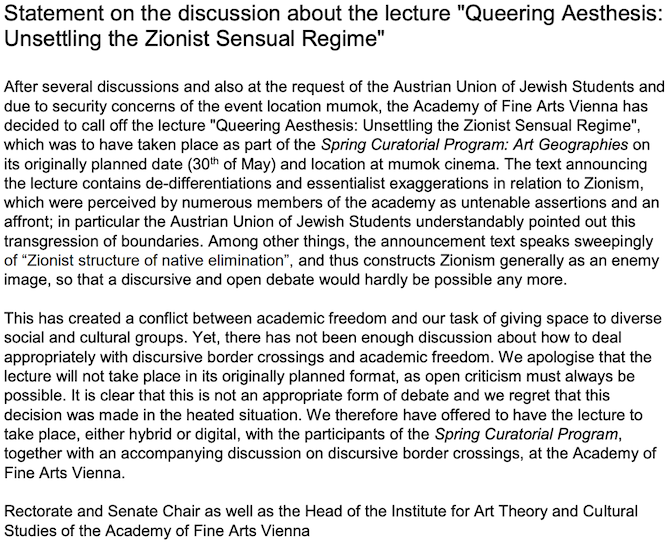
akbild’s ‘justification’ left me as disturbed and enraged as the very act of my cancellation four days prior. Not only does the statement lack any convincing clarification with regards to any due process of the decision, but it grotesquely perpetuates the same arbitrary negation of scholarly engagement beyond the terrains of Zionist-colonial permissibility. The cancellation itself is explained in relation to ‘transgression of boundaries’ pertaining to image and discursive limitations around Zionism. As I explain in my response to akbild, the accusations of ‘essentialist exaggerations’ of Zionism are themselves rooted in an ideological conflation of Jewishness with one specific vision of Zionism. Such a conflation, which itself propagates an essentialist and reductive understanding of Jewishness, serves the same political and military agendas avowing the negation of Palestinians and their narrative. To put it simply, the Palestinian narrative cannot be heard or uttered if proscribed by the Zionist-colonial panopticon.
Decolonial Policing
‘We must do everything to insure they (the Palestinians) never do return.’
– David Ben-Gurion, in his diary, July 1948.
‘When invasion is recognized as a structure rather than an event, its history does not stop […] Rather, narrating that history involves charting the continuities, discontinuities, adjustments, and departures whereby a logic that initially informed frontier killing transmutes into different modalities, discourses and institutional formations …’
– Patrick Wolfe, ‘Settler Colonialism and the Elimination of the Native‘
My silencing is not a one-off event or an arbitrary act of censorship but is part of a larger systematic attack against scholars and artists whose work sheds critical light on Zionism and the Nakba structure in Palestine. Many of these attacks on scholars and artists – including Dr. Anna-Esther Younes and participants in the Documenta 15 exhibition – are part of a widely documented systematic assault on Palestinian voices with Germany and Austria at its epicentres. Its victims are yet to receive any reparations for the hateful incitement, despite the increased labour precarity they now face as a result of these campaigns waged against them. akbild and mumok’s actions are part of wider racial and homophobic violence against Global South scholars and students that continues unabated within Europe’s so-called progressive institutions. Dr Adriana Qubaiova, a lecturer on a queer theory course at akbild, wrote to her institution that: ‘I list Dr. Walaa Alqaisiya’s work in my syllabus alongside several Palestinian scholars working on gender, sexuality, and queer theory. Several of my students were looking forward to attending Dr. Alqaisiya’s talk and engaging with her; this would have been an invaluable opportunity for our young scholars.’ Qubaiova then adds: ‘From this position, I ask: – How is it possible that I can teach Dr. Alqaisiya’s work at the Academy while she is not allowed to speak at the same space? – I also ask: will the Academy’s breach of academic freedom extend to further unilateral censorship and policing of courses offering critical perspectives such as mine?’
Dr Qubaiova’s words should send chills down the spine of every free academic because they not only remind us of the arbitrary power that ‘the institution’ can hold in certain unpredictable moments against discursive outlaws – such as my sudden cancellation under the pretext of a ‘discursive transgression of boundaries’ – but most importantly, Qubaiova’s rhetorical questions shed light on the danger lying ahead, as the academy’s draconian censorship gestures towards further honing of disciplinary and exclusionary technologies. Verein K’s condemnation and subsequent withdrawal of their event from akbild’s premises also will likely jeopardise a future working relationship with akbild.
During my sole communication (via phone) with akbild’s rector to discuss the reason for my cancellation, the only apology he relayed was in relation to the mishandling of the process of abstract selections on the academy’s part. The rector made sure to affirm repeatedly that he agreed with the content of the accusations voiced against my abstract’s ‘offensive language’. In other words, the only thing that akbild took responsibility for was its incapacity to prevent this from the beginning, i.e., had it handled the process of abstract selections carefully, the disciplinary boundaries of discursive permissibility would have excluded me at a much earlier stage, avoiding the subsequent headache akbild had to deal with. In fact, in the phone call I had with Petrović four days prior, she voiced how members of akbild had thought that the conference would have run smoothly, not having expected that all these ‘contentions’ would emerge. One wonders how an institution can call for a conference, aiming to ‘focus on critical, decolonial, feminist and material dimensions of planetary co-existence,’ and not expect ‘contentions’ to emerge? If a genuine attempt to advance decolonial thinking is to take place, are we expected to peacefully reconcile the atrocities of past and present colonialisms without any ‘contentions’?
What remains most troubling, however, is the way these same institutions opt to deal with these ‘contentions,’ and how these processes lay bare the workings of the neoliberal academy/museum sphere and the settler-coloniality they advance and defend. Palestine’s negation is the litmus test for how far the West and its institutions are willing to go in support of empire and its continuity throughout the Global South. The volumes of injustice Palestine faces remain excluded from Western institutional ‘check-lists’ on critical discourse and/or democratic processes. The Nakba is not only a troubling force that will continue to haunt Western institutions and the (hypo)‘critical’ scholarly and artistic visions they harbour; but it is a continuous reminder of the mobilisation, work and action needed against the knowledge regime feeding the geopolitical, economic and cultural infrastructures of settler colonialism and imperialism.
For scholars affected by similar issues to those raised in this blog, the European Legal Support Center specialises in providing legal support and advice to Palestinian rights advocates across Europe and the UK: https://elsc.support/contact




